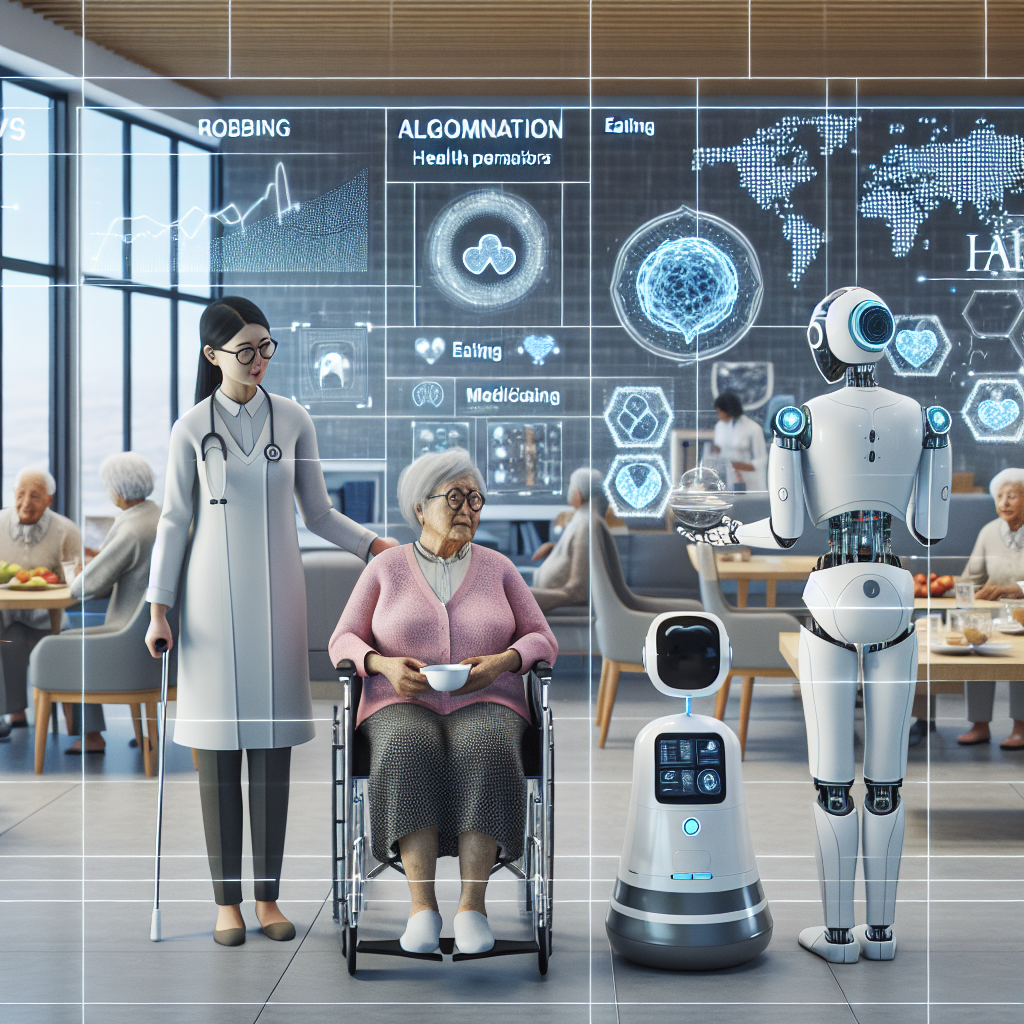“`html
Exploring the Future of Elder Care: The Role of AI
As technology continues to evolve, one area that stands to benefit enormously is elder care. With the integration of Artificial Intelligence (AI), we are on the brink of transforming how we care for the older generation. But what does this all mean? Let’s explore some common questions around AI in elder care.
What is AI and How Can It Help in Elder Care?
AI, or Artificial Intelligence, refers to computer systems that perform tasks typically requiring human intelligence. These include problem-solving, understanding languages, and learning from data.
In the context of elder care, AI can assist in numerous ways:
- Monitoring Health: AI can continuously monitor vital signs through wearable devices and alert healthcare providers or family members of any irregularities.
- Medication Management: Smart pill dispensers can remind patients to take their medication at the correct times, reducing the risk of under or overdosage.
- Fall Detection: AI-powered sensors can detect falls and immediately notify caregivers, potentially preventing serious injuries.
- Social Companionship: AI through robots or voice assistants can offer social interaction, helping to combat loneliness and cognitive decline.
Is AI in Elder Care Safe?
Safety is paramount when integrating AI into elder care. Most AI systems are designed with stringent safety protocols and data privacy measures. However, it’s always important to choose reputable systems with transparent privacy policies and strong security measures.
Expert Tip: When selecting any AI device for elder care, consult reviews, verify its compliance with healthcare regulations, and consider a conversation with a healthcare professional.
Will AI Replace Human Caregivers?
One common concern is that AI may replace the need for human caregivers, but that’s not the case. AI is meant to enhance and support human caregiving, not replace it. By handling routine and monitoring tasks, AI enables caregivers to focus on the humanistic aspects of care such as emotional support and relationship building.
How Can Caregivers Start Implementing AI?
Implementing AI in elder care can seem daunting, but it’s easier with a few simple steps:
- Research: Start by understanding the different AI technologies available and how they can meet specific caregiving needs.
- Consult Professionals: Talk to healthcare providers or tech experts to get advice tailored to your situation.
- Trial and Feedback: Begin with a small-scale trial of selected AI tools, gather feedback from users, and adjust as necessary.
Conclusion
AI holds the potential to revolutionize elder care, providing enhanced safety, increased independence, and improved quality of life for our seniors. As we embrace this technological shift, it’s key to focus on compassionate integration that respects the decisions and preferences of the elderly.
If you have further questions or want to share your experiences, feel free to comment below!
“`
